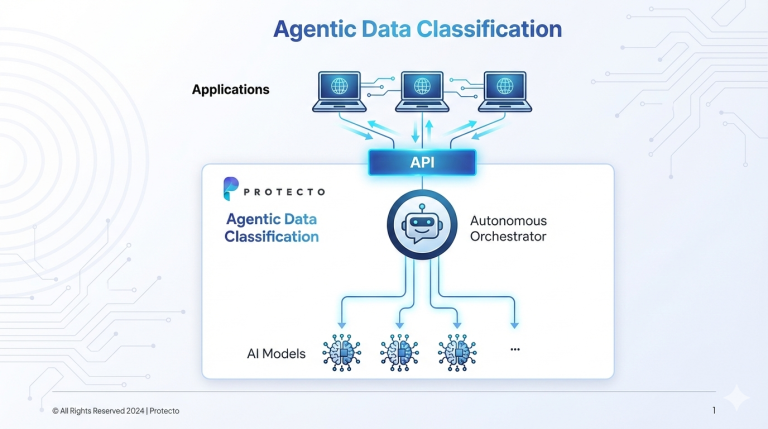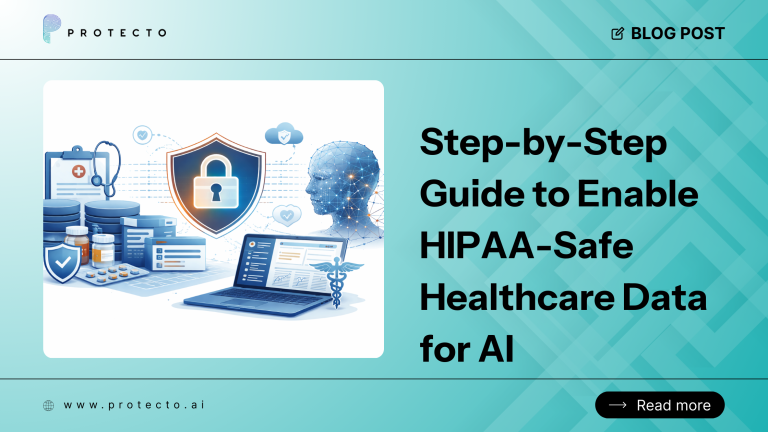U.S. Government Issues Directive on AI Governance and Risk Management
In a move to harness the transformative power of artificial intelligence (AI) while mitigating associated risks, the Executive Office of the President has issued a landmark memorandum directing federal agencies to advance AI governance, innovation, and risk management. Spearheaded by Shalanda D. Young, the memorandum underscores the importance of responsible AI development in safeguarding the rights and safety of the public.
Overview
AI stands as one of the most potent technologies of our era, offering immense potential across various sectors. However, its adoption necessitates effective management to ensure ethical and safe use. With this in mind, the memorandum outlines new requirements and guidance for agencies to navigate the complexities of AI governance, innovation, and risk management.
Over the years, many concerns regarding the ethical and responsible use of AI have come to the fore. Since AI evolves at a rapid pace, it is crucial for government organizations to keep up with its evolution and bring about sensible measures and regulations to ensure its safe use. This effort is a step in the right direction.
Strengthening AI Governance
The directive emphasizes creating strong governance structures for Artificial Intelligence within each agency. As per Executive Order 14110, agencies must appoint a Chief AI Officer (CAIO) within 60 days. These officers will have a significant role in coordinating AI initiatives and must work closely with existing stakeholders in both technical and policy areas.
Advancing Responsible AI Innovation
While AI holds immense promise for streamlining government operations and enhancing service delivery, its adoption must be accompanied by safeguards. Agencies are called upon to bolster their capacity for responsible AI adoption, including generative AI while facilitating the sharing and reuse of AI models and data. Each agency must develop an enterprise strategy for promoting the responsible use of AI, addressing barriers related to IT infrastructure, cybersecurity, and workforce readiness.
Managing Risks from AI Use
Despite the potential benefits of AI, its deployment poses inherent risks, particularly concerning public safety and individual rights. The memorandum mandates agencies to follow minimum practices when utilizing AI systems that impact safety or rights, enumerating specific categories of AI presumed to have such impacts. Furthermore, agencies must adhere to stringent risk management practices, including compliance with existing regulations and reporting requirements.
Scope
The directive applies to all federal agencies, focusing on addressing risks stemming from using AI to inform or execute agency decisions. While the memorandum outlines specific requirements for AI governance and risk management, it does not supersede existing federal policies related to enterprise risk management, IT, privacy, or cybersecurity. Agencies are encouraged to coordinate compliance efforts and allocate necessary resources to support implementation.
Key Actions
Several vital actions are outlined in the memorandum to ensure compliance and accountability:
- Designating Chief AI Officers within 60 days.
- Convening agency AI governance bodies to coordinate efforts.
- Submitting compliance plans to OMB every two years.
- Inventorying AI use cases annually and reporting on associated risks.
- Implementing reporting mechanisms for AI use cases not subject to inventory.
Final Thoughts
The issuance of this memorandum underscores the federal government’s commitment to harnessing AI’s potential while safeguarding public interests. By prioritizing responsible AI governance and risk management, agencies can navigate the complexities of AI adoption while upholding ethical standards and protecting individual rights. As agencies move forward in implementing these directives, collaboration, and adherence to best practices will be crucial in securing the accountable and effective use of AI across government operations.
NTIA Urges Accountability and Investment in Trustworthy AI Systems

To ensure the responsible development and deployment of artificial intelligence (AI) systems, the National Telecommunications and Information Administration (NTIA) under the Department of Commerce has called for independent audits of high-risk AI systems. This initiative, outlined in the AI Accountability Policy Report released today, underscores NTIA’s commitment to fulfilling President Biden’s vision of harnessing AI’s potential while mitigating associated risks.
Background
The AI Accountability Policy Report, a crucial component of NTIA’s efforts, aims to uphold accountability in the rapidly evolving landscape of AI technology. By establishing robust accountability policies, NTIA seeks to instill confidence among stakeholders, including developers, deployers, regulators, and the public, regarding the safety and reliability of AI systems.
Key Recommendations
The report outlines a comprehensive set of policy recommendations categorized into Guidance, Support, and Regulations:
1. Guidance: NTIA advocates for establishing guidelines for AI audits and auditors, enhancing transparency through standard information disclosures, and defining liability standards to hold accountable those responsible for AI system harms.
2. Support: To bolster independent evaluations of AI systems, NTIA calls for increased investment in resources, including support for organizations like the U.S. AI Safety Institute and establishing a National AI Research Resource. Additionally, fostering research initiatives to develop reliable assessment tools for AI systems is emphasized.
3. Regulations: NTIA recommends mandatory independent audits and regulatory inspections for high-risk AI model classes and systems. Furthermore, it urges strengthening government capacity across sectors to address AI-related risks and practices, along with enforcing sound AI governance and assurance practices in government contracting.
Impact and Implications
These recommendations underscore the critical need for accountability in AI development and deployment. By promoting transparency, independent evaluation, and regulatory oversight, NTIA aims to mitigate risks associated with AI systems while unlocking their transformative potential. Moreover, the emphasis on government investment and capacity-building reflects NTIA’s commitment to fostering innovation in the AI landscape while safeguarding public interests.
Conclusion
NTIA’s call for accountability and investment in trustworthy AI systems marks a significant step towards realizing the full benefits of AI technology. Through collaborative efforts with stakeholders and robust policy frameworks, NTIA aims to foster a culture of responsibility and transparency in AI innovation, ensuring that these technologies serve the public interest while upholding ethical standards and safety measures. As AI continues to shape various sectors of society, NTIA’s initiatives pave the way for a future where AI-driven innovation coexists harmoniously with accountability and trust.
Federal Agencies Unite to Uphold Civil Rights Laws in Artificial Intelligence

In a significant move to safeguard civil rights amidst the rise of artificial intelligence (AI) technologies, the Justice Department has announced the inclusion of five new cabinet-level federal agencies in a pledge to enforce core principles of fairness, equality, and justice. This collaborative effort underscores the government’s commitment to addressing potential biases and discriminatory outcomes associated with the increasing use of AI in various sectors of American life.
Key Developments
The joint statement, initiated in April 2023, now boasts the participation of the Department of Education, Department of Health and Human Services, Department of Homeland Security, Department of Housing and Urban Development, and Department of Labor, alongside the Consumer Protection Branch of the Justice Department’s Civil Division. This expanded coalition reaffirms the government’s resolve to hold entities accountable for unfair or discriminatory practices stemming from AI utilization.
Assistant Attorney General Kristen Clarke emphasized the importance of this collective effort, stating that federal agencies are prepared to utilize their authority to combat potential injustices resulting from the adoption of AI, algorithms, and automated systems by various entities such as social media platforms, financial institutions, landlords, and employers.
Centralized Resource Hub
The Civil Rights Division has launched a dedicated webpage to facilitate public access to information regarding AI-related civil rights issues. This resource hub aims to educate individuals about unlawful discrimination that may arise from advanced technologies and provide avenues for victims to seek assistance from the division.
Government Coordination
The recent convening of civil rights offices and senior officials from multiple federal agencies underscores the government’s commitment to coordinated action in addressing AI-related civil rights concerns. Discussions during the gathering centered on strategies to enhance enforcement, coordination, external engagement, and public awareness regarding the potential discriminatory impacts of AI systems.
Future Steps
Participants in the convening highlighted ongoing efforts to fulfill obligations outlined in President Biden’s Executive Order on AI. Agencies are poised to release guidance, best practices, and resources to mitigate AI-enabled discrimination as early as the end of April. Additionally, agencies will assess and reduce technology risks, including AI-enabled discrimination, in their operations, as mandated by the Office of Management and Budget’s recent memorandum.
Conclusion
The collaboration among federal agencies to enforce civil rights laws in artificial intelligence signifies a proactive approach to address emerging challenges in the digital age. By prioritizing fairness, equality, and justice, the government aims to ensure that AI technologies contribute positively to society while upholding fundamental rights for all individuals. As agencies continue to advance their efforts, the collective commitment to AI accountability remains paramount in shaping an inclusive and equitable future.



